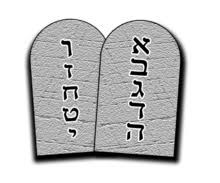Cz – The Hebrew Slave 15: 12-18
The Hebrew Slave
15: 12-18
The Hebrew slave DIG: What is a bond-slave? What rights did Jewish slaves have? What responsibility did the owners have? In what way do these instructions help Isra’el prevent slavery? Why do you think God reminds the Israelites that they had once been slaves? What is the new relationship in verses 16-17? How is this different from the previous relationship?
REFLECT: In what way have believers been freed from slavery? How is this to influence our care for others? What implications do these verses have for employees? Employers? What do these verses tell you about God’s priorities in relationships and property? As ADONAI has cared for the woman maidservant, how has He cared for you?
Jewish debtors unable to repay their loans could become indentured servants in the household of the man to whom they were indebted, and in that way, worked off their debt.
The second mitzvah designed to protect the poor is concerned with a Hebrew man who would sell himself as a slave (Greek: doulos, meaning a bond-slave) to his creditor to pay a debt. At the end of six years, he was to be released and sent away with generous gifts which would help him to start a new life. In the faithful observance of this mitzvah, Isra’el would recall her own time of slavery in Egypt and the abundant provision she enjoyed when her release came. The memory of this would act as a powerful motivating force.356
The mitzvah stated (15:12): If your fellow Hebrew – a man or woman – is sold to you and serves you six years, then in the seventh year you are to set him free (15:12). It is very probable that the word Hebrew here has a socioeconomic meaning rather than a merely ethnic one. This is basically a restatement of the mitzvah that occurs in Exodus 21:2-11, but adds some typically Deuteronomic extras. This commandment serves to limit the time of servitude. However, it also gives us a great principle that prepares us for the coming mitzvot dealing with our fellow mankind. The commandment that permeates the Torah, lifts up men and women as being created in the image of God. Through this mitzvah and the ones that follow, ADONAI claims His own and warns of any abuses that one person would exercise over another. The point is, no one can own another person. Every man and woman belong to YHVH who created them.357
The mitzvah explained (15:13-18): When you set him free, you are not to send him away empty-handed. You are to surely provide for him as much as he can carry from your flock and threshing floor and winepress. As ADONAI your God has blessed you, you are to give to him (15:13-14). This would give the man a fresh start in life. Once again, the humanitarian spirit of Deuteronomy is clear.
While the master was himself an Israelite, he would not have experienced the Exodus. But, because of the corporate nature of Isra’el, any person, in any age, could be regarded as one with those who had personally experienced the deliverance of the Exodus, and could in memory, and by an act of identification, enter into that ancient experience by faith. You will remember that you were a slave in the land of Egypt, and ADONAI your God redeemed you; therefore, I am commanding you this thing today (15:15). Hence, any master of a slave, in any age, by freeing his own slave would be expressing gratitude to God for having liberated His own people. It would also remind him that his own personal welfare depended on that grace.
If, for some reason, the man or woman in Isra’el desired of his or her own free will to remain in the service of the master, it was possible to do so for the rest of life. But even apart from that possibility, the release of a Hebrew slave was not to be counted as a loss, since six years of his or her service was equivalent to the cost of hiring a servant. Obedience to this mitzvah would guarantee the divine blessing and no loss would result to the master.358

Now if the Hebrew slave tells you, “I will not go away from you” – because he loves you and your household since he is well off with you (15:16). The example given in Exodus 21:5 was a slave who had married and had children during that seven-year period and did not want to leave them behind. The master would formalize that decision by taking an awl and putting it through his ear (the symbol of obedience as in Psalm 40:6-8; Isaiah 50:4-5) to the door as a symbol that he had joined the master’s household, and then he would become a servant forever (15:16-17a). Notice that the name changes from slave to servant. The name implies someone of value and importance, and does not have any negative implications.359 Therefore, the servant had an important place in the family. We see the case where Eliezer the servant was sent by Abraham to find a wife for his son Isaac (see the commentary on Genesis, to see link click Fx – Go to My Country and My Own Relatives and Get a Wife for My Son Isaac).360
And to your female slave you are to do the same (15:17b). So, the man was free to go after the sixth year, but for a woman, it was different. If a man sells his daughter to be a maidservant, she is not to go free as the male servants to (Exodus 21:7). To our human way of thinking, this hardly seems fair. But in the eyes of God, this was a very loving thing to do. ADONAI was more concerned about her safety than anything else. If she does not please her master who has selected her for himself, then he is to allow her to be redeemed. He will have no power to sell her to a foreign people, seeing as he has dealt deceitfully toward her (Exodus 21:8). In those days it was virtually impossible for a woman to make it in the world without some protection. As a result, the LORD required someone from her family to redeem her (see the commentary on Ruth Ax – Ruth and Bo’az on the Threshing Floor). And as ADONAI cares for the women maidservant, He cares for each one of us.361
But because it is hard for an owner to let go of his free labor, ADONAI reminded him of his great deal: Do not consider it a hardship when you set him free from you, for he has served you six years – equivalent to the value of a hired worker. So, ADONAI your God will bless you in all that you do (15:18). Throughout the TaNaKh, Isra’el’s treatment of the poor, fatherless, and widows served as a barometer of the nation’s obedience to YHVH’s mitzvot. Treating these needy people with compassion, justice, and equity was a fundamental part of being able to lift up God’s name before the surrounding nations. The health of Isra’el was often measured by the quality of their care for these people, not by her accumulation of wealth.362
Dear Loving Heavenly Father, How wonderful You are! Praise You that Yeshua bore the pain and shame of being the sacrifice for our sins, He made the One who knew no sin to become a sin offering on our behalf, so that in Him we might become the righteousness of God (Second Corinthians 5:21). Praise You for saving all who love and follow Yeshua as their Lord and Savior. For if you confess with your mouth that Yeshua is Lord, and believe in your heart that God raised Him from the dead, you will be saved. For with the heart it is believed for righteousness, and with the mouth it is confessed for salvation (Romans 10:9-10). What a joy to know that Yeshua is preparing a home for them in heaven. In My Father’s house there are many dwelling places. If it were not so, would I have told you that I am going to prepare a place for you? If I go and prepare a place for you, I will come again and take you to Myself, so that where I am you may also be (John 14:2-3). There is eternal joy in pleasing you by being merciful as You are. It is more important to be kind and merciful than to be selfish and greedy. We love You. In Yeshua’s holy name and power of His resurrection. Amen
Certainly, there is a spiritual message here for God’s people today. We should love our Lord so much that we should want to serve Him willingly and gladly all our lives. We must never look upon our service as slavery, but as being a servant (see the commentary on Romans Bv – The New Master in Messiah). I love my Master . . . and do not want to go free is a wonderful confession of faith and love (Exodus 21:5 NIV). Granted, the servant’s love for his wife and children entered into the picture, but even those blessings came because of his master’s kindness, and the master was caring for them as well as his servant. What we all need is an open ear to hear the will of ADONAI, and a pierced ear that announces we love Him and are ready to obey His every mitzvah.363





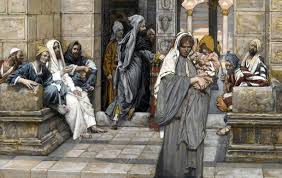

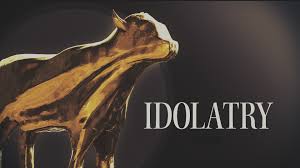






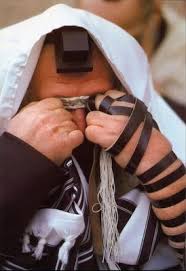
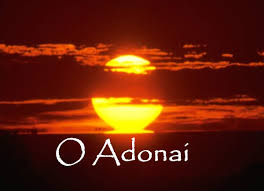

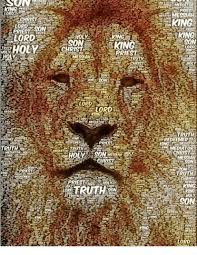 क्योंकि सुसमाचार की अनूठी प्रकृति के कारण, सुसमाचार को समझने या पढ़ने के दौरा न किसी को दो चीजें करना चाहिए, आपको
क्योंकि सुसमाचार की अनूठी प्रकृति के कारण, सुसमाचार को समझने या पढ़ने के दौरा न किसी को दो चीजें करना चाहिए, आपको 
